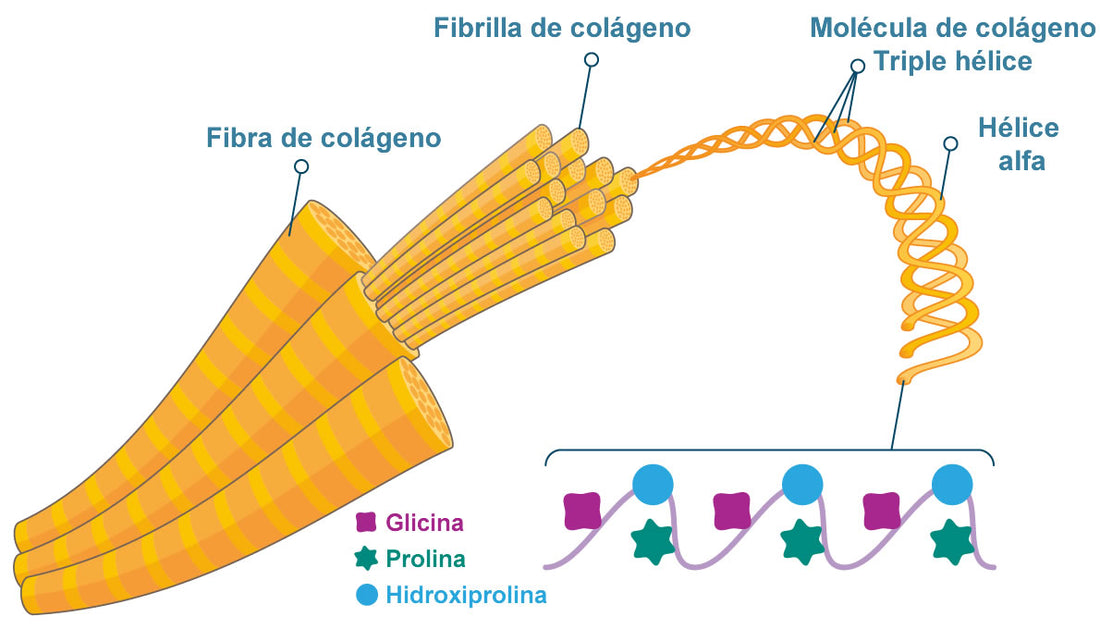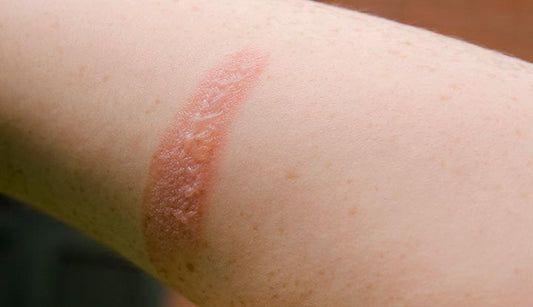Discovering the Miracle of Collagen Biosynthesis: Its Formation and Benefits for Health and Beauty
Introduction
In the human body, collagen is an essential protein that contributes to the formation of our skin, bones, connective tissues, and much more. But how is this very important protein formed in our body?
1. Collagen and its evolution in the body
Collagen is formed in the body in several stages, beginning with its secondary form, which occurs in coils, and ending with its tertiary form, which is a water-soluble triple helix.
2. Tropocollagen: Characteristics and properties
Tropocollagen, a form of collagen, has the ability to hydrate, that is, to unite water molecules to form a physical entity with a gelatinous consistency.
3. Collagen breakdown and reuse
The spiral structure of tropocollagen can be broken down again into individual molecules and even shorter amino acid constructs. These breakdown products can again participate in the synthesis.
4. The role of hydroxyproline in the formation of collagen
Hydroxyproline, an amino acid specific only to collagen, considerably favors collagen synthesis processes, despite the fact that it does not directly bind to proteins.
5. Stages of collagen formation
Collagen formation goes through several stages. First, the polypeptide chain twists to the left, then they join to form triplets, and finally disulfide bonds are formed.
6. Formation of the supercoil and fibrils
After triple helix formation, the molecules are oxidized to form reactive aldehydes, allowing for the formation of subfibril supercoils. Eventually, these supercoils tightly intertwine to form microfibrils, from which fibers are formed. It is a phenomenal biological process and always fascinating.
7. Factors influencing collagen biosynthesis
Collagen biosynthesis varies depending on several factors, including age, state of health, and nutrition. It is most efficient in youth, in states of vibrant health and excellent amino acid metabolism, and slows down when the body begins to age, is affected by diseases, or when the necessary components for collagen synthesis are not supplied.
8. Importance of collagen for health and beauty
Collagen is essential for health and beauty. It contributes to excellent connective tissue, wrinkle-free skin at retirement age, keen eyesight, resistance to infection, and rapid healing of wounds and injuries. In short: youth, health and beauty.
Conclusion
Collagen formation is a complex but fascinating process that plays a crucial role in our health and well-being. As we age, collagen production declines, underscoring the importance of a healthy diet and healthy lifestyle to maintain collagen levels.
Frequent questions
-
What is collagen? Collagen is an essential protein that contributes to the formation of our skin, bones, connective tissues and much more.
-
How is collagen formed in our body? Collagen forms in several stages, starting with its secondary form in coils and ending in its tertiary form as a water-soluble triple helix.
-
What is tropocollagen? Tropocollagen is a form of collagen that has the ability to hydrate and bind water molecules to form a physical entity with a gelatinous consistency.
-
What factors influence collagen biosynthesis? Collagen biosynthesis varies depending on several factors, including age, state of health, and nutrition.
-
Why is collagen important for health and beauty? Collagen contributes to excellent connective tissue, wrinkle-free skin in retirement age, keen eyesight, resistance to infection, and rapid healing of wounds and injuries.
























































































































